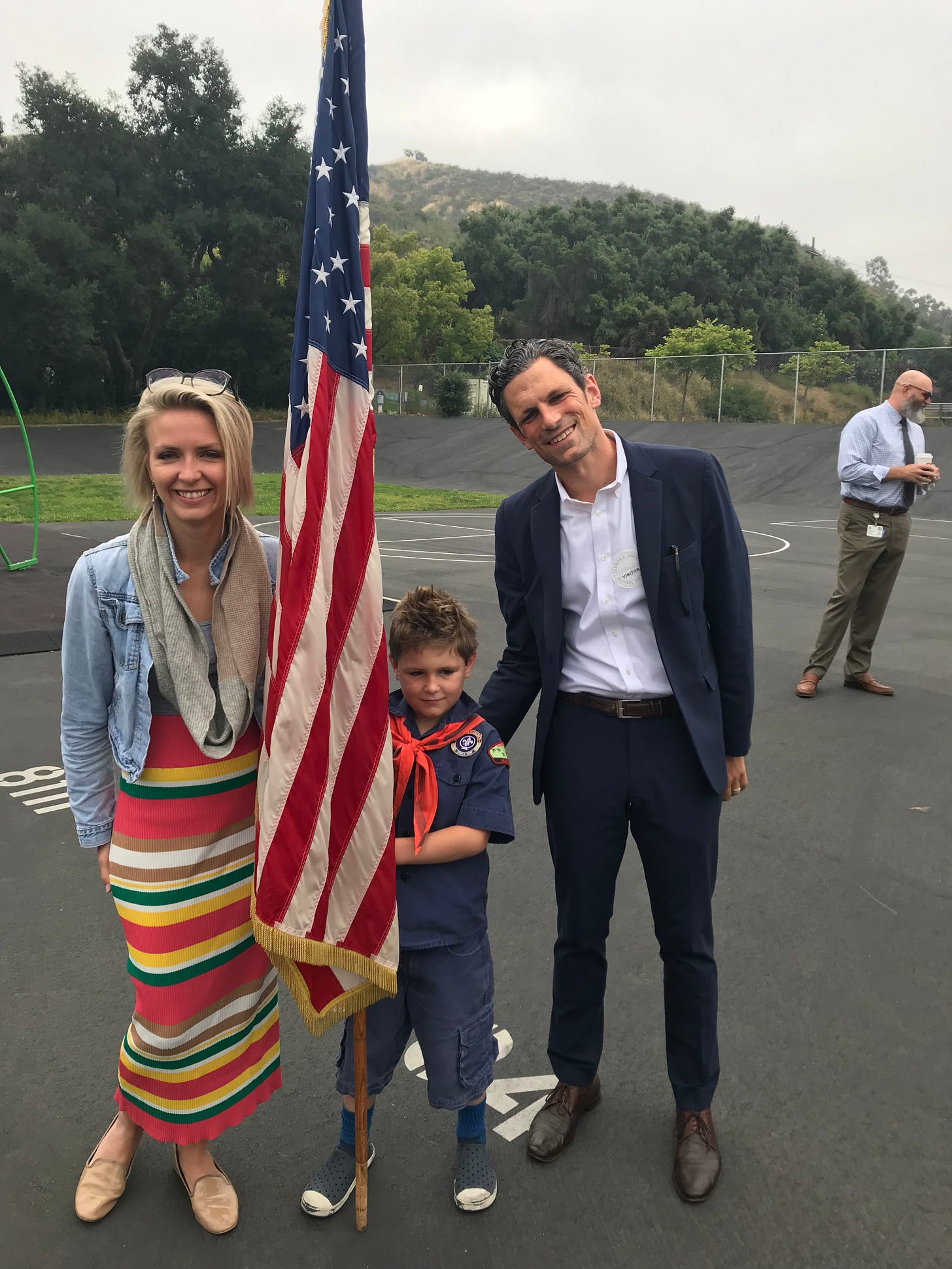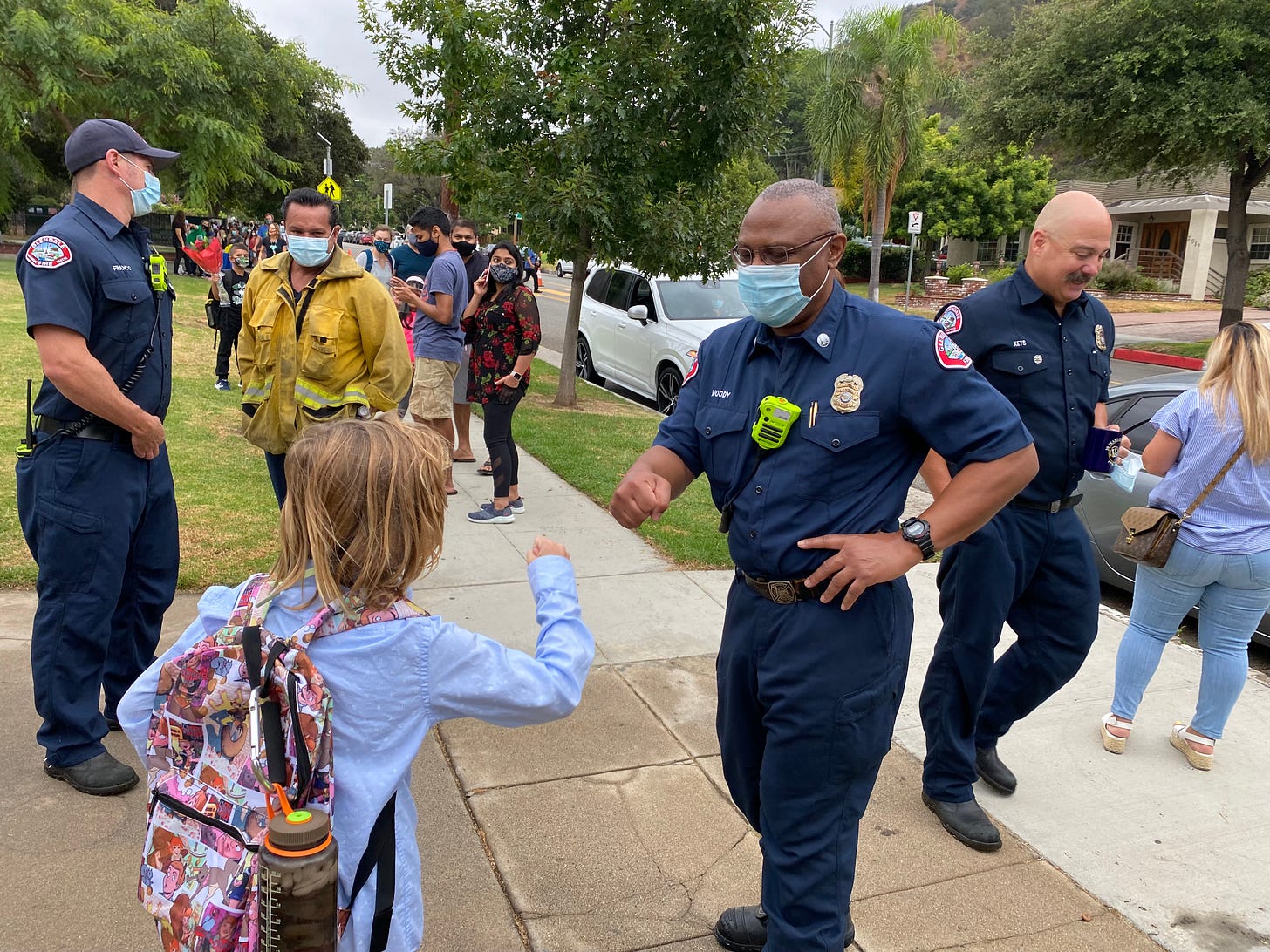Public education’s crisis of the unknown
Republicans are winning a long fought battle to rid the federal government of a Department of Education; but what does that do to help our children?
Many of America’s best public educators are on edge — stuck in a fog of the unknown.
On the same day President Trump’s team staged students around him, like props, to tout his dismantling of the Department of Education, I was fortunate to be far away — joining an open house for my son’s public school.
I saw class projects of many talented students. My son drove a robot car around my feet. Music from an excellent band and drumline filled the hallways. The school’s culinary arts program — which my son adores — sold food. (Cooking and eating during school, what could be better?)
Still, there was an air of uncertainty. Most of my son’s teachers know my background in government. Many expressed worries and fears about what’s happening. Besides Trump’s actions, which have created confusion, there are budget pressures in California and continued world weariness as our public education system recovers from a global pandemic.
As the school celebrated our students, the question of how public education continues to survive and thrive — an almost unthinkable question — seemed to hang over all of it.
Distractions
President Trump won the 2024 election, in part, by continuing to aggressively gin up a culture war, with our education system as one of the largest battlefields.
Trump made issues — such as school bathrooms and trans athletes participating in sports — into dividing lines and wedges. While a population that makes up less than 1% of students according to research by UCLA law school, is the focus, the biggest problems are ignored.
We’re in an era of rapid technological advancement and galaxy exploration, when AI and quantum computing are changing our workforce and the skills students will need in ways we are just starting to understand. A new era of interconnectedness and risks.
This era of massive change isn’t reflected in the small and the petty fights amongst each other. We’ve allowed this political tit for tat to infect our classrooms, our playgrounds, and divide our kids — the way we ourselves feel divided.
In the process, we’ve ignored, and even villainized, the millions of teachers who are in some cases teetering, unsure that leadership will support what they need for our system to thrive.
A public school parent
I started my son in daycare at 18 months. The teachers were wonderful, empathetic and formative. It was also insanely expensive, and it’s gotten worse. Even more frustratingly the price didn’t translate to teacher pay, the very people who were caring for my son.
I wanted so badly to get my son into a public school setting, a place with transparency and a public interest. A fellow mom told me that though my son didn’t qualify for early pre-kindergarten in LA I could see if enrollment numbers allowed them to accept younger students.
I found a school willing, just down the street from the apartment we were renting. The school was an LA Promise School, one notable for poverty rates, not test scores.
I’m not going to lie, the receptionist didn’t seem too happy to see us. But I loved that school. Moms volunteered together, even if the majority needed translation headsets for meetings like that when electing the school site council, they looked out for each other, and wanted a better future for their kids.
I was on the school site council and would hear about a range of problems: Sometimes it was teachers who felt that federally mandated tests were too complex and burdensome for their students. Sometimes it was that homeless encampments had filled the sidewalks around our schools, and the population of immigrant mothers and fathers, who were themselves working hard to maintain a home, feared for their children walking in the streets around the encampments. Sometimes it was a kid who didn’t show up for weeks at a time.
My son switched to another public school when he reached kindergarten, because we moved within L.A. County.
A neighbor suggested we call the school to enroll early because a kindergarten teacher at the school spent her summer interviewing incoming kindergarteners to ensure that classrooms were balanced with wired kids and calm kids. Mrs. Newman reached out to us directly.
She also promised us that our son and every other student in her class would read by the time he left kindergarten — a promise she fulfilled. I was particularly worried about it because my family has a long history of dyslexia. She gave every student who walked in her classroom, no questions asked, ziplock bags filled with books (which she collected on her own time). At the end of the school year, she celebrated the total number of books read by each student. Money couldn’t buy the effect she had on generations of America’s kids.
Around that time, my son went to the open house of a private school his friend was attending. I heard the boys talking after they came out of the bathroom, “Why is your school so nice?” my son asked. Later, I asked my son if they had a Mrs. Newman. No, they didn’t, he said (he himself is a great judge of teachers, and a very selective one at that).
A school is more than nice bathrooms, I told him.
Education for our future
My son was in second grade, just getting ready for spring break, in March 2020. They were scheduled to perform The Lion King. They never put on the production. When rumors started that schools might close, I thought — knowing the essential nature of our public schools to our communities — that they would be the last thing to close.
They were one of the first.
I believe closing our schools will be one of this generation’s biggest regrets.
In my son’s world, everything came to a halt. My son didn’t see his friends. He became lonely and frustrated.
Each state had its own reopening process. That’s what President Trump said he wanted more of last week — more state control of education.
California, for its part, didn’t bask itself in glory with COVID closures. It took us nearly 2 years to fully reopen.
When we did finally reopen schools, things were different. Parents fought over masks, over vaccines. Many kids fell behind. And some of our best educators — one of my son’s teachers every Thursday hosted a Zoom game night — now had different struggles: kids at every different level coming back, with social and emotional problems that could take years to correct.
When I saw the doubt on educators’ faces last Thursday it felt familiar. The doubts of whether our leadership is up to the challenges we face.
Like early COVID Zoom meetings of parents, unsure whether we were making good decisions. We still don’t know precisely how the change at the federal level will affect the states, though there’s rightful worry for changes, at a time when distractions from our real challenges abound.
And communities coming together for public education, something vaguely promised in the signed executive order? I hope so. I’m not sure President Trump has much of a track record leading there.
What I am certain of is that America is less without robust public education. And there have been so many obstacles and doubts put on a system that is too often called out for the issues and not often enough recognized for its successes. That should change. In our public school, far away from the President’s pen, there were plenty of successes to celebrate.






